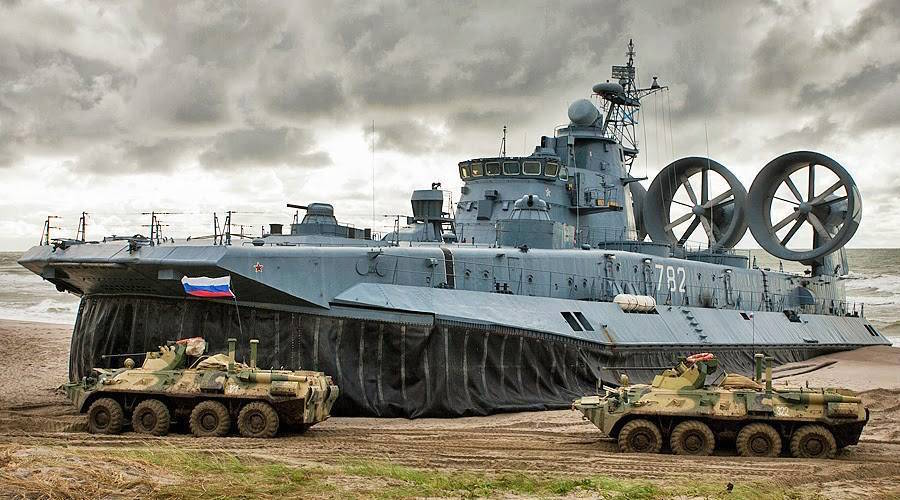Russian military spending drops
May 2, 2018 | Expert Insights

Western sanctions and a long recession has forced Russia's military to slash spending by 20%, noting its first drop in nearly two decades. Tighter controls are likely to affect Russia's military activity in the future.
Background
The Armed Forces of the Russian Federation was established after the dissolution of the Soviet Union. The three "branches of Armed Forces" are: Ground Forces, Aerospace Forces, and the Navy. By the end of 1990, Russia had the world's second largest economy, largest standing military in the world, and the largest stockpile of weapons of mass destruction.
In 2010, the International Institute for Strategic Studies (IISS) estimated that the Russian Armed Forces numbered about 1,027,000 active troops and in the region of 2,035,000 reserves (largely ex-conscripts). According to the Stockholm International Peace Research Institute (SIPRI), in the period between 2005-2009 and 2010-2014, Russian exports of major weapons increased by 37%; Russia spent US$66.4 billion on arms in 2015, and US$69.2 billion in 2016, having taken 3rd place (after the US and China).
The Russian military is one of the most formidable and modern military forces in the world and its fleet is comparable to that of the US. Russia is now almost an equal to the US as a power broker in the Middle East. It is backing the Syrian government in the Syrian civil war and has an increasingly powerful presence in Middle East politics.
President Vladimir Putin has spoken increasingly about Russian military might. According to Putin, the weapons developed by Russia will easily render NATO defences "completely useless.” The nation has reportedly developed a highly advanced arsenal of nuclear weapons. His statements have previously caused concern in Washington which perceives Russia as a challenger and a threat to its sovereignty.Read more: Russia’s warning to the world.
Analysis
Russia has promoted its military strength across the globe, with the 2014 annexation of Ukraine's Crimean Peninsula, its support of separatists in eastern Ukraine, and its contribution to the Syrian civil war since 2015. However, the country has been forced to cut military spending which could negatively impact its future operations, according to the Stockholm International Peace Research Institute (SIPRI).
Russia's sharp military cutback occurred while military spending reached a post-Cold War high in 2017, led by higher spending in the United States, China, and Saudi Arabia. While global military spending increased by 1% to US$1.74 trillion, Russia's spending fell 20% to US$66.3 billion. Read more: Russia being a threat to US?.
As a result, Russia’s ranking as the world's biggest military spenders dropped to fourth place, overtaken by Saudi Arabia. The latest decline in spending is Russia's first military cutback since 1998, when Russia's economy collapsed, and it defaulted on its debt.
The cuts in military spending are also due to Russia’s economic woes - a deep, two-year recession brought on by a collapse in oil prices in 2014, and Western sanctions imposed over Russia's aggression in Ukraine the same year.
The revenues Russia generates from exporting oil, gas, aluminium, and other commodities has rebounded since the recession but remain far below levels set in 2014. In March, Russia stated that it would cut its defense budget to less than 3% of gross domestic product within the next five years.
It is still uncertain whether Russia will have to cut military spending further to support Putin's recent call for more spending on social programs such as healthcare and education, to ensure higher living standards. Some officials have called for lower military spending to free up funds for similar domestic initiatives.
In recent years, Western democracies have accused Russia of conducting covert operations to influence the functioning of these nations. In 2016, Russia was accused of running a disinformation campaign against US Presidential candidate, Hillary Clinton. The emails of the Democratic National Party were also hacked and released by Wikileaks. The WannaCry attack was one of the most potent cyberattacks that took place in May 2017, paralyzing hundreds of thousands of systems across the world. The UK government has accused Russia of hacking elections and it has been implicated in the alleged hacks that took place during the French presidential elections. Russia has also been accused of being the mastermind behind the “NotPetya” attacks in 2017.
Cyber threats are extremely broad based and could paralyze entire governments. They could neutralize banks, oil companies, airports, construction companies, as well as top secret government secrets that have been digitized.
Assessment
Our assessment is that though Russia may have reported a decline in military spending, it has established itself as a major player in netcentric warfare. The cost of conducting such cyberattacks is much lower than conventional warfare. Countries have to invest more in military equipment if they have a strategic plan to dominate maritime routes. We believe that the amount of money that is required by any country will depend on its grand national security strategy. Countries like India can marginally reduce military expenditure by focusing more on offensive cyber capabilities.








Comments